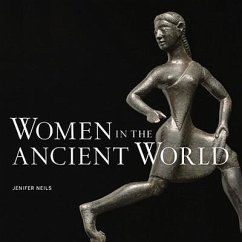This book takes a fresh look at visual representations of women in the ancient Near East, Egypt, Greece, and Rome, and analyzes them for indications of women's roles in these societies. After examining their traditional functions as wives and mothers, the author presents evidence of women's participation in the public and religious spheres. Juxtapositions comparing images and attitudes of each society reveal whether the women portrayed are meant to be examples of perfect femininity or the object of scorn, faithful wives or untouchable priestesses or high-living prostitutes. Depictions of goddesses and the dress and adornments of women are analyzed for what they divulge about ideals of feminine beauty and attitudes toward female nudity. The text is packed with quotations from contemporary sources that reveal details about women in the ancient world, often with surprising resonance for our own time. The illustrations, many specially commissioned, include public art and domestic artifacts: sculptures, wall and mummy case paintings, engravings, silver objects, and jewelry.








